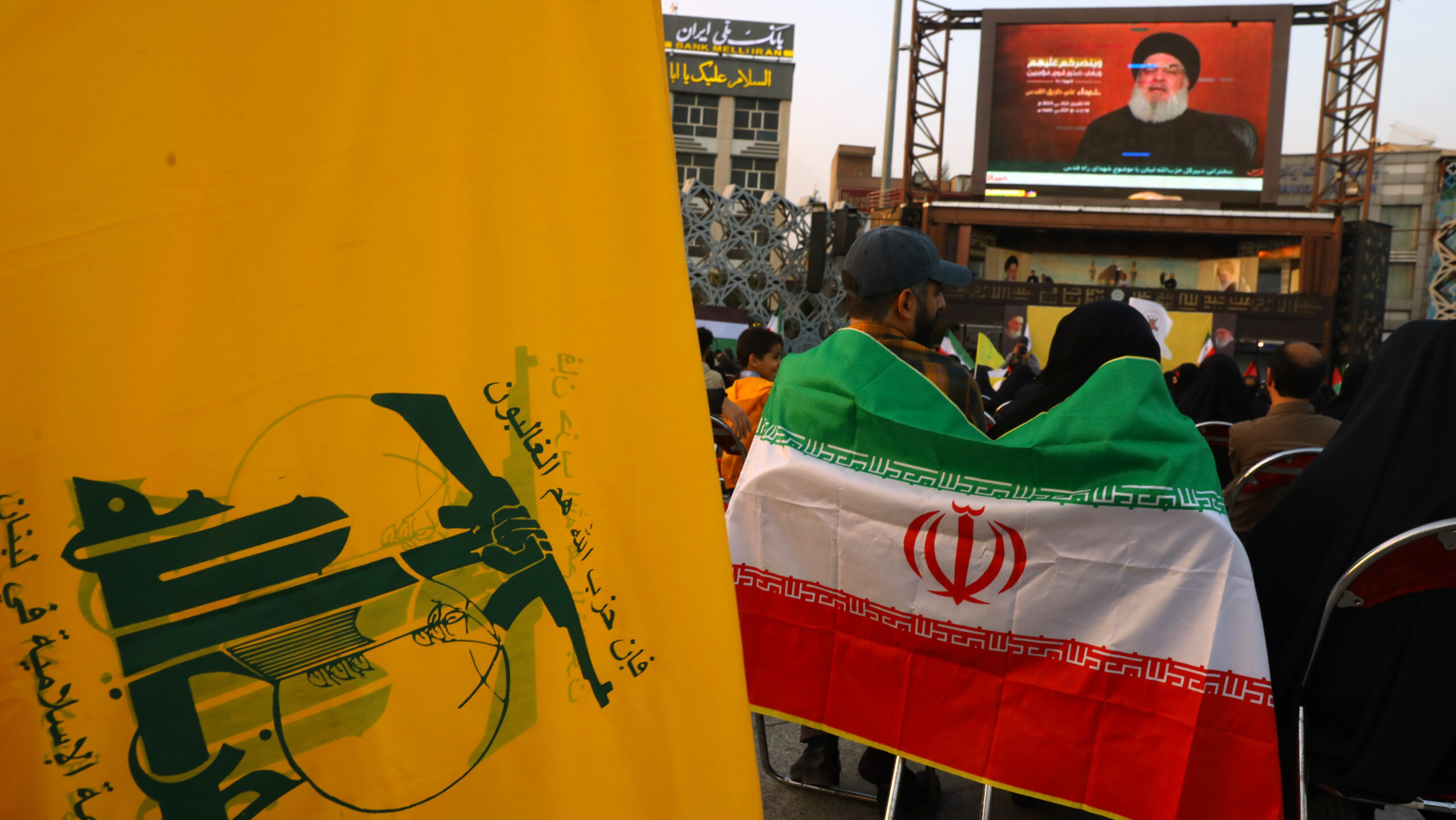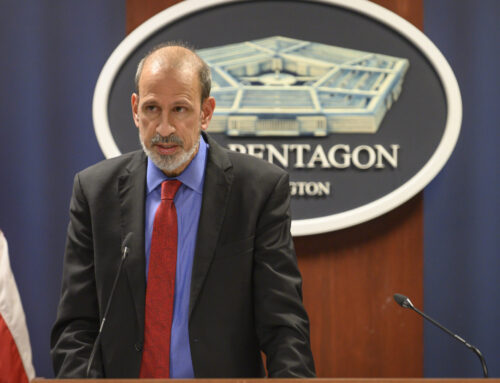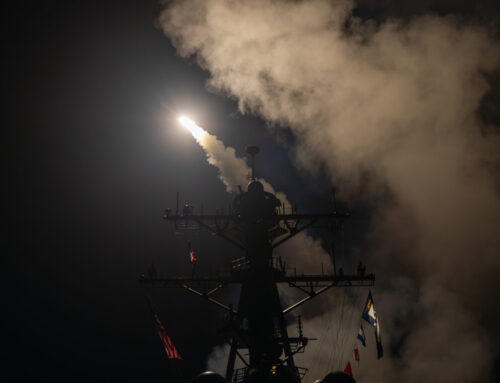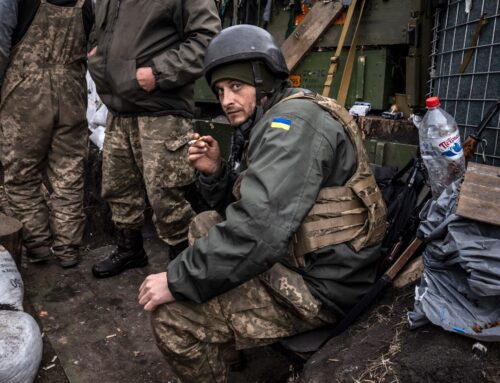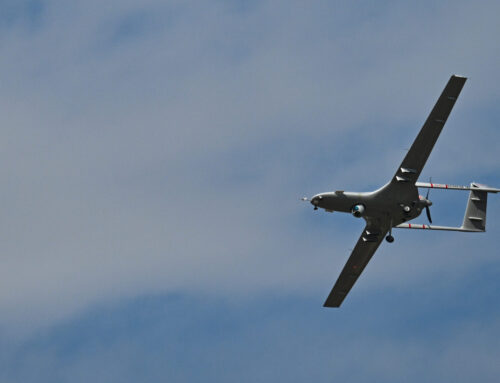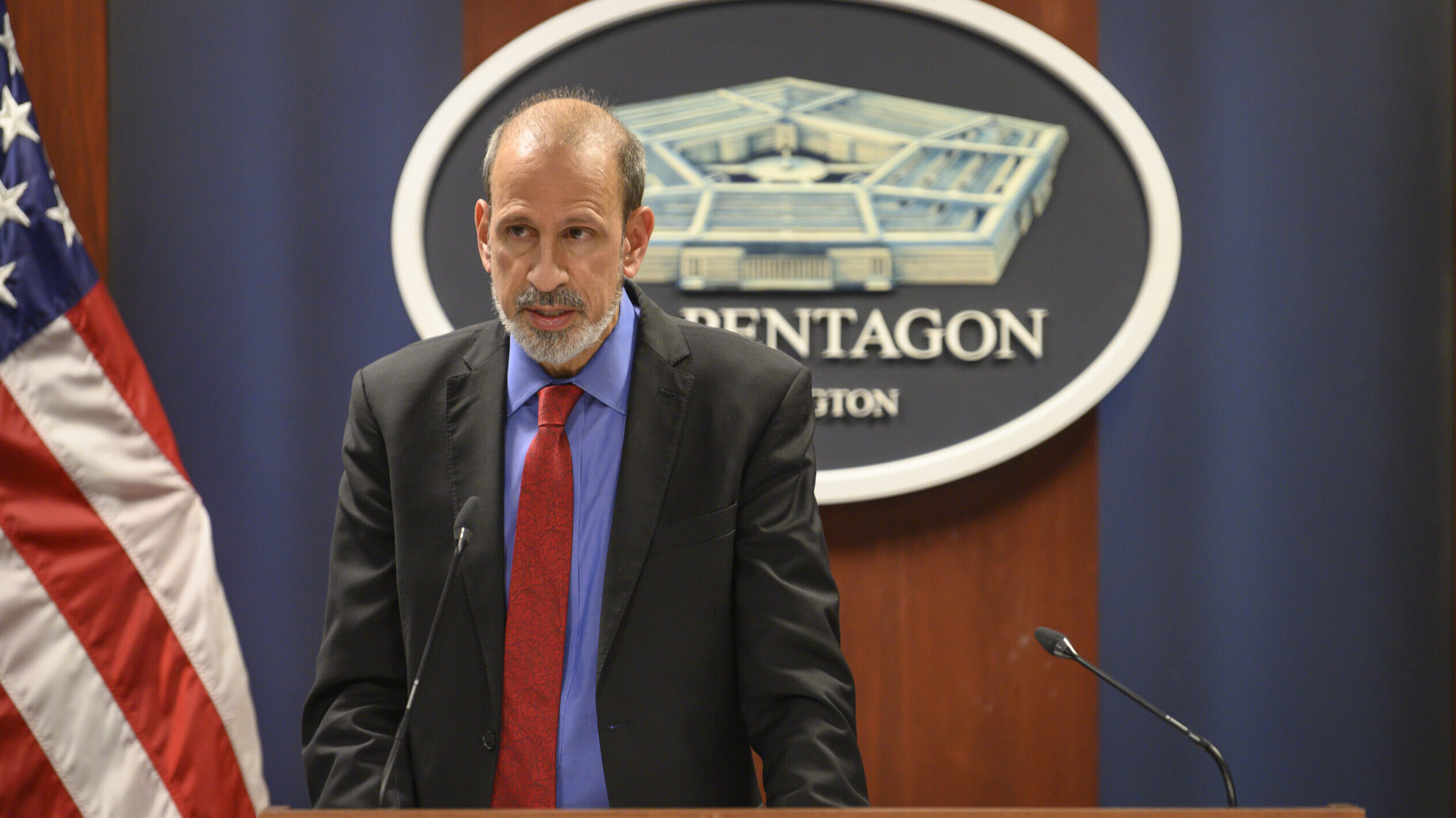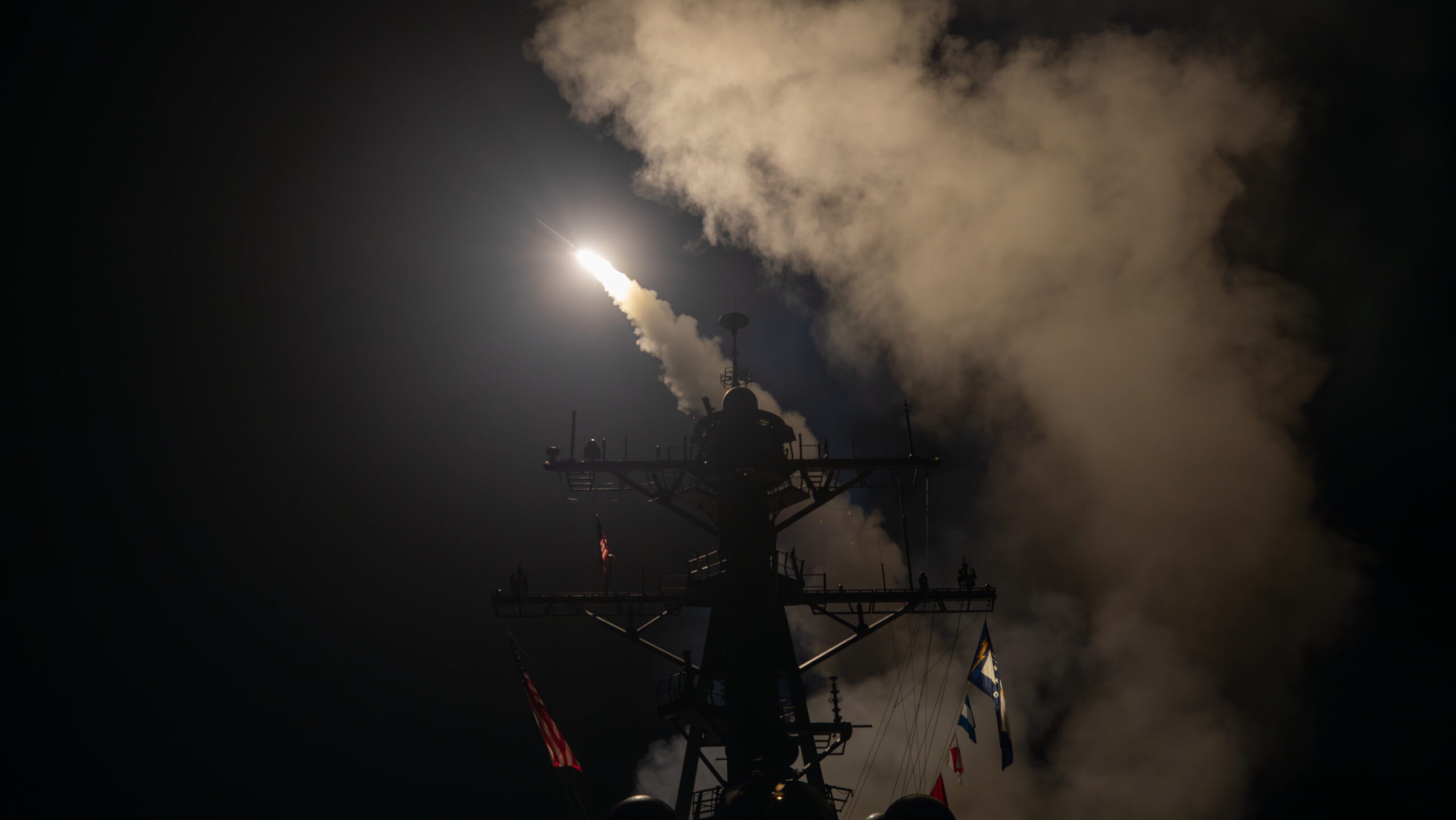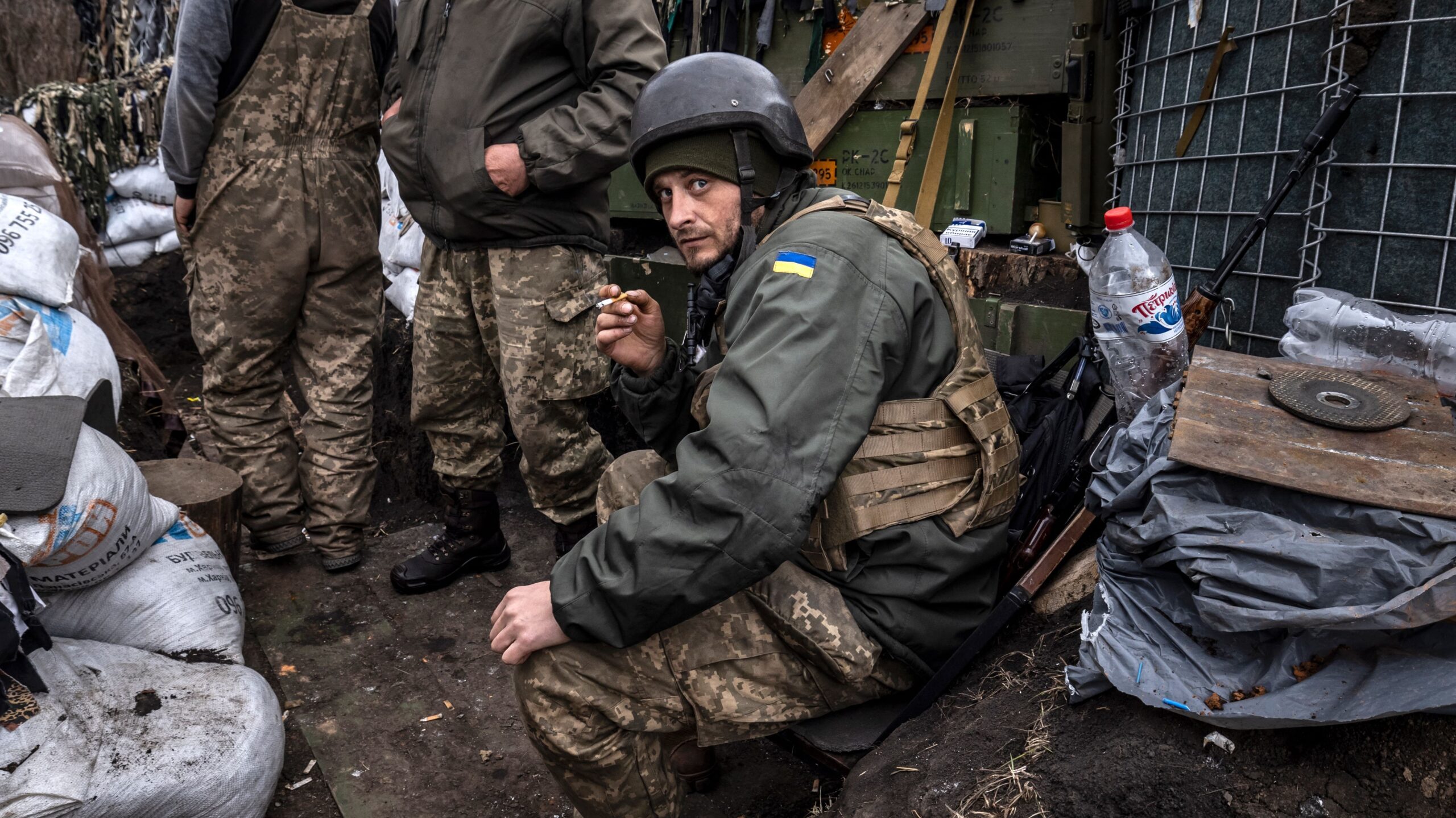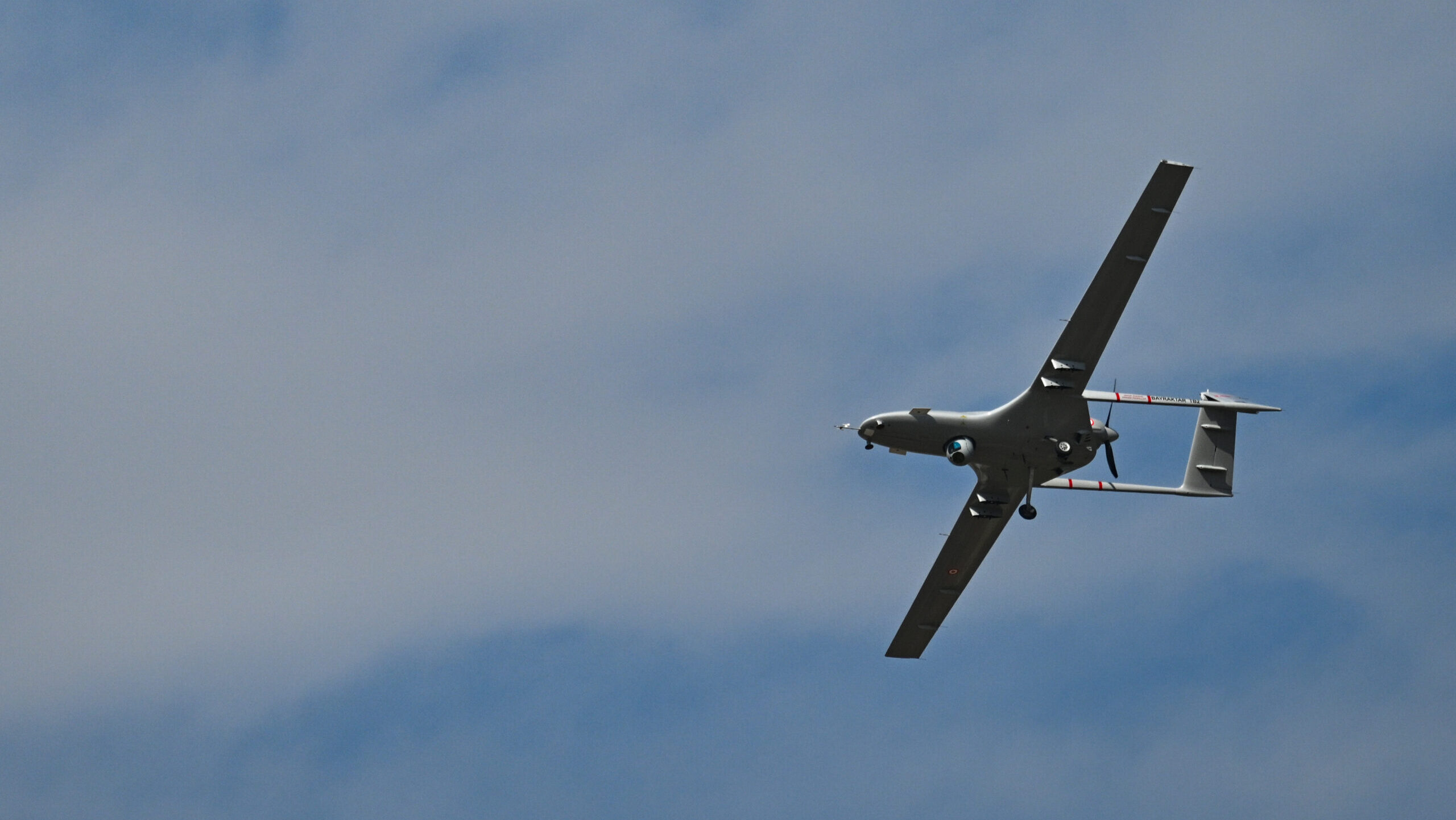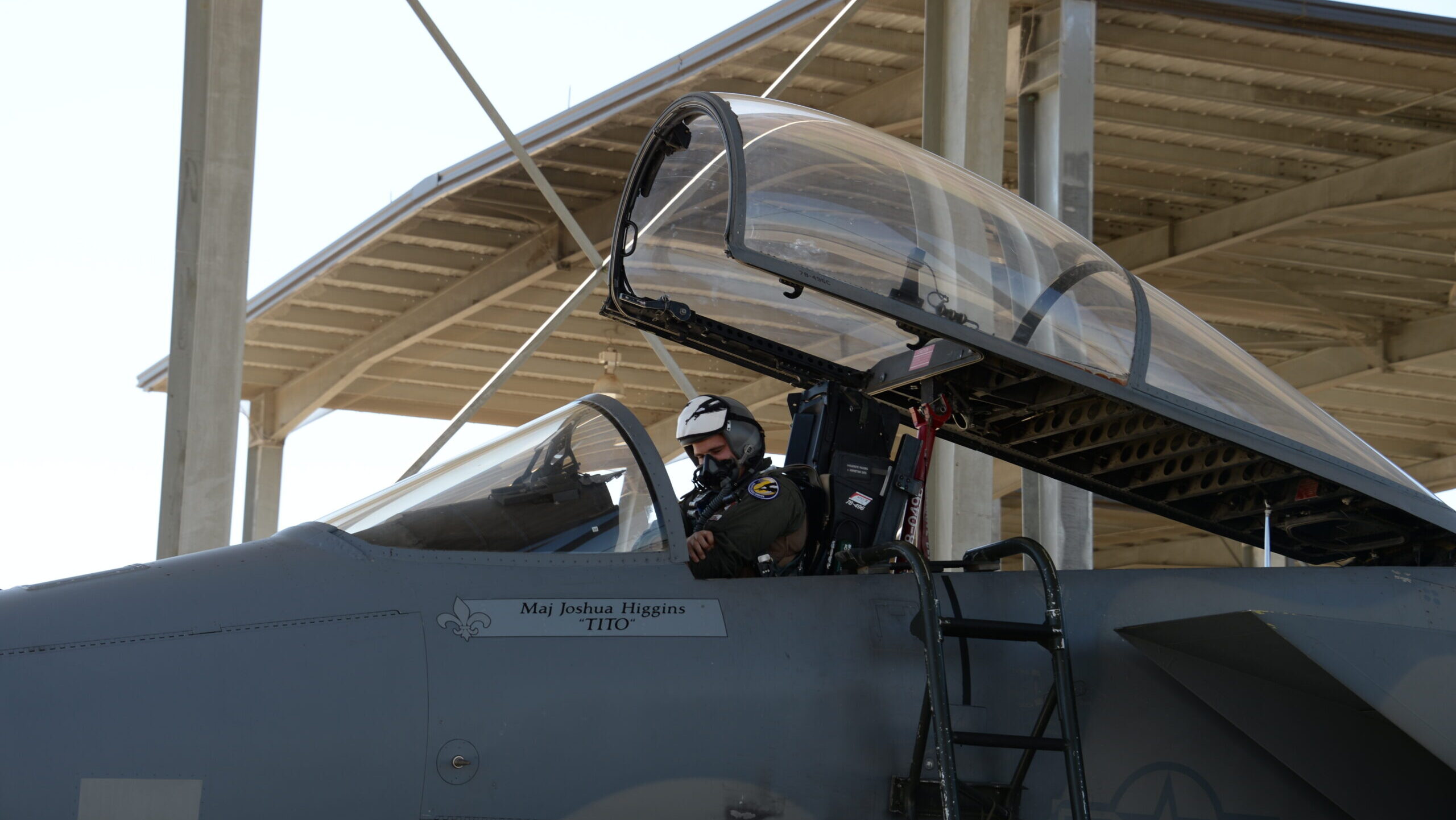People in Iran listen to the speech by Hezbollah leader Hassan Nasrallah on November 3, 2023 in Tehran, Iran. (Photo by Majid Saeedi/Getty Images)
BEIRUT and WASHINGTON — As Israel has pummeled Hezbollah, killing several senior leaders, blowing up purported hidden weapons caches and striking out at hundreds of members through booby-trapped pagers, the group’s most powerful backer, Iran, has stayed almost completely on the sidelines, offering token public support.
That’s because, more than a half-dozen analysts told Breaking Defense, Tehran is prioritizing its own strategic interests — in this case staying out of a conflict for as long as possible, even if it means allowing its longtime regional beneficiary to be decimated by the enemy Iran has long prepared them to face.
Hezbollah’s patronage from Iran is no secret. Hezbollah Secretary General Hassan Nasrallah previously highlighted the proximity with Iran, to an extent that in a June 2016 speech he said that the group’s “funds, weapons, salaries and all other expenses come from Iran.”
But for any Hezbollah members looking for robust reassurances from their backer, especially with signs indicating Israel may attempt a ground invasion, they’d be hard pressed to find them in public statements by Iranian leadership in recent days.
Supreme Leader Ayatollah Ali Khamenei declined to offer tangible support in an address Monday, only saying that Israeli strikes targeting Hezbollah leaders would not work and that “the organizational strength and human resources of Hezbollah is very strong.” The same day Iran’s new president, Masoud Pezeshkian, said Iran would “defend any group that is defending its rights and itself” but claimed Israel was trying to draw Iran into a “trap.” Instead he emphasized an appeal to the international community to “now allow Lebanon to become another Gaza.”
“We seek peace for all and have no intention of conflict with any country,” he said.
On Thursday the Financial Times reported that Iran had dispatched envoys to Lebanon to quell Hezbollah fears that it was being left out in the cold, but that will be tall order. Prior to that news, analysts told Breaking Defense that the war has revealed Iran’s perception of Hezbollah as a tool of statecraft more than a true partner it’s obliged to rescue.
Hezbollah has been propped up by Iran all these years to be a threat on Israel’s border that Tehran can activate in case of open conflict between Israel and Iran, according to the experts. But that relationship is not a two-way street, according to Jonathan Lord, a regional expert with the Center for a New American Security.
“Hezbollah exists to protect Iran, not the other way around,” Lord told Breaking Defense. “The king doesn’t lie down to save the pawn.”
Wehbe Katicha, a retired Lebanese armed forces general, concurred, saying “When Hezbollah was in a hard position, Iran has abandoned it and is using the excuse that Hezbollah is capable of confrontation.”
“Iran’s first priority is to avoid violence escalating into all-out regional war,” added Thomas Juneau, a regional expert from the University of Ottawa. And even for one of its crown jewels in the so-called Axis of Resistance, “Iran’s actions this week aim at avoiding pouring oil on the fire — which overt and vocal support for Hezbollah would inevitably do.”
Still, Khalil Helou, another retired general in the Lebanese military, said he was surprised by just how muted Iran’s reaction to the Israeli offensive has been.
“They are not giving signs of supporting Hezbollah in this war. Hezbollah is under attack, and Iran is doing nothing,” he said. “[Instead] Iranian speeches show appeasement towards US and talks about nuclear deal, and there is a trend for appeasement with Israel.”
A cloud of smoke erupts during an Israeli air strike on the village of Sujud in southern Lebanon on September 25, 2024. Israel announced dozens of new air strikes on Hezbollah strongholds in Lebanon on September 24, a day after 492 people, including 35 children, were killed in the deadliest bombardment since a devastating war in 2006. (Photo by Rabih DAHER / AFP) (Photo by RABIH DAHER/AFP via Getty Images)
What Could Push Iran Into The Fight, And What Would Tehran Do?
However, the experts said Israel still must be cognizant of Iran’s breaking point.
“If Israel pushes too far and Hezbollah is under threat of total collapse, which would mean the Hezbollah tool isn’t there when Iran needs it as a second-strike capability against Israel, that could compel [Tehran] to try and take some escalatory action,” Lord said. “So I think the Israelis have to walk a fine line, understanding that it would be the tail waging the dog for Tehran to come save Hezbollah.”
Juneau said that in the case of an Israeli ground invasion of south Lebanon, “it becomes more likely that Iran would step in and increase its support for Hezbollah. Iran would still prioritize avoiding more escalation, but at the same time it would also try to limit what are already significant losses for Hezbollah.”
Another factor that might trigger Iranian support for Hezbollah could be “a direct attack inside Iran,” Sina Azodi, an adjunct professor at George Washington University who specializes in Iranian policy, told Breaking Defense. Israel is believed to have previously killed a senior member of the Palestinian militant group Hamas in Tehran.
“This would most likely trigger a response, but I think that overall Iranians are cognizant of the dangers of this and that’s why they’ve showed a great deal of restraint,” Azodi said.
MORE COVERAGE ON ISRAEL AND LEBANON:
For Lebanon, a war in all but name has finally arrived: Experts
After the failure of Oct. 7, with Hezbollah Israel gets the war it trained for
In first, Hezbollah launches Qadr 1 ballistic missile towards Tel Aviv
How Israel degraded Hezbollah for years to come, in 8 days
Exploding pagers, major strike: Israel turns its war aims north in ‘new phase’
The UN’s peacekeeping mission in Lebanon has been renewed, but amid constant clashes, will it help?
In Northern Israel, emptied villages and talk of war in Lebanon
In South Lebanon, empty villages, ruined crops and fears of what comes next
The last time Tehran launched a high-profile attack on Israel, it was in April with a mostly ineffective missile and drone barrage. That came in response to a reported Israeli strike on senior Iranian military leaders in Damascus.
Outside of repeating that offensive, experts said Iran appears to be fairly limited in what it could realistically do.
“So if we’re talking about an Israeli operation that fundamentally changes that equation, near-irreparably destroys Hezbollah, Iranians are then looking at the menu of options they have to try and get Israel to stay its hand,” Lord said.
He said that “on one hand, [a response] maybe something similar to what we saw in April, which Iran seems loathe to do again based on their messaging and the posture of US forces in the region.” He said Tehran could consider something “perhaps more limited and targeted, but it doesn’t have great options, because we’re outside the bounds of what is the typical Iranian doctrine for projection power and coercing its enemies in the region.”
Behnam Ben Taleblu of the Foundation for Defense of Democracies, a group critical of the Iranian regime, said a repeat of the April barrage was possible, but this time “with less warning and with more advanced systems. But that change would have to be brought about by near-existential conditions” for Hezbollah.
Mara Karlin, a longtime regional expert who has served a number of roles in the Pentagon, specified that an Iranian support to its proxies will include training and equipment, “but it’s hard to imagine the Iranian military deploying to support of Hezbollah.”
In the meantime, there does not seem to be an end to the conflict in sight, despite American- and French-led efforts to broker a 21-day ceasefire.
“This is born of a desire to break the tit-for-tat and create the political space and security for a return of [Israel’s] displaced citizens,” Ben Taleblu said. “This will apparently only come with deeper blows landed against Hezbollah that put it in a bind when it comes to responding.”


